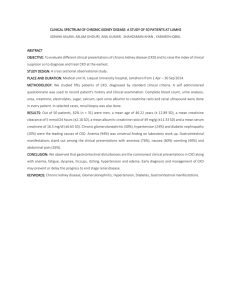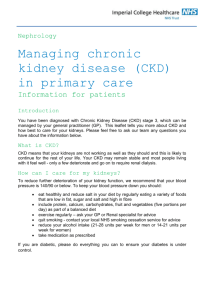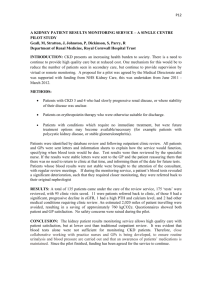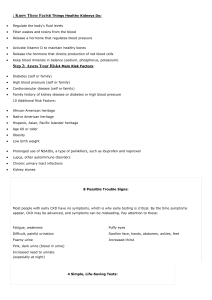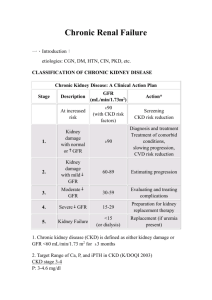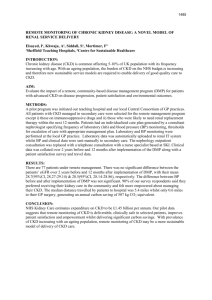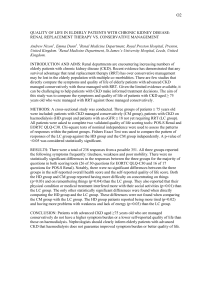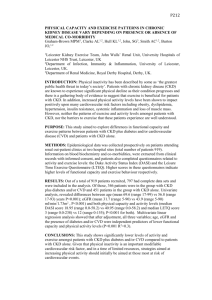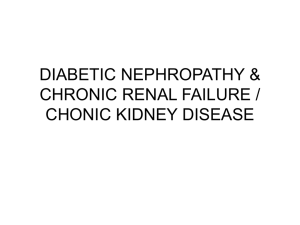Coronary Artery Disease
advertisement
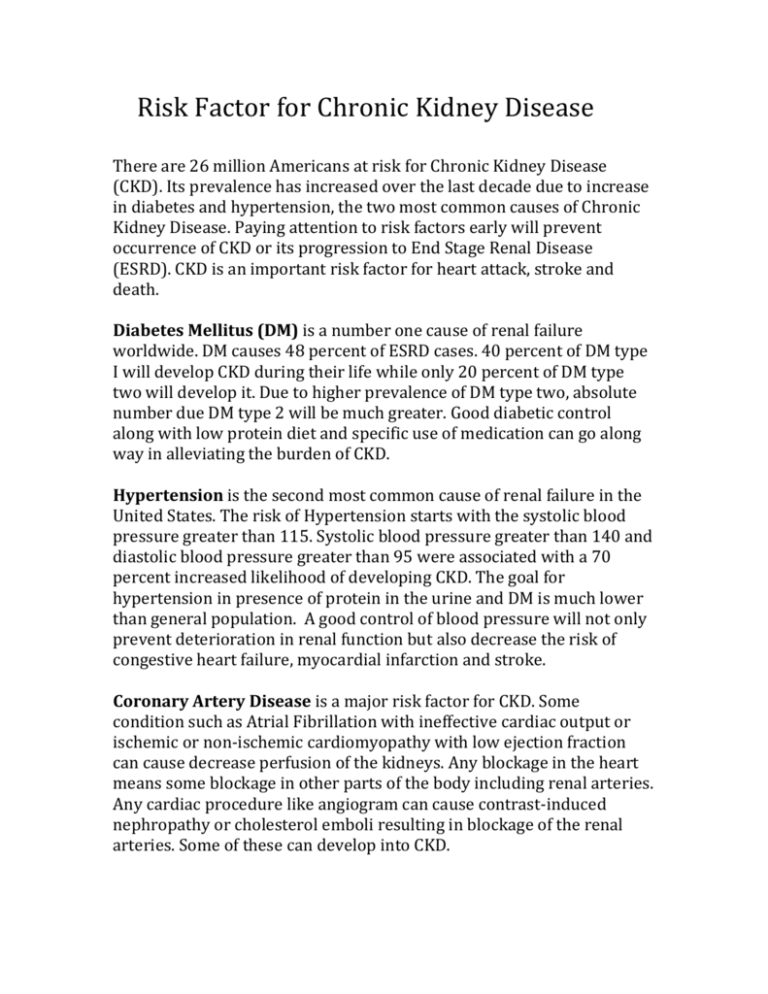
Risk Factor for Chronic Kidney Disease There are 26 million Americans at risk for Chronic Kidney Disease (CKD). Its prevalence has increased over the last decade due to increase in diabetes and hypertension, the two most common causes of Chronic Kidney Disease. Paying attention to risk factors early will prevent occurrence of CKD or its progression to End Stage Renal Disease (ESRD). CKD is an important risk factor for heart attack, stroke and death. Diabetes Mellitus (DM) is a number one cause of renal failure worldwide. DM causes 48 percent of ESRD cases. 40 percent of DM type I will develop CKD during their life while only 20 percent of DM type two will develop it. Due to higher prevalence of DM type two, absolute number due DM type 2 will be much greater. Good diabetic control along with low protein diet and specific use of medication can go along way in alleviating the burden of CKD. Hypertension is the second most common cause of renal failure in the United States. The risk of Hypertension starts with the systolic blood pressure greater than 115. Systolic blood pressure greater than 140 and diastolic blood pressure greater than 95 were associated with a 70 percent increased likelihood of developing CKD. The goal for hypertension in presence of protein in the urine and DM is much lower than general population. A good control of blood pressure will not only prevent deterioration in renal function but also decrease the risk of congestive heart failure, myocardial infarction and stroke. Coronary Artery Disease is a major risk factor for CKD. Some condition such as Atrial Fibrillation with ineffective cardiac output or ischemic or non-ischemic cardiomyopathy with low ejection fraction can cause decrease perfusion of the kidneys. Any blockage in the heart means some blockage in other parts of the body including renal arteries. Any cardiac procedure like angiogram can cause contrast-induced nephropathy or cholesterol emboli resulting in blockage of the renal arteries. Some of these can develop into CKD. Glomerulonephritis (GMN) is inflammation of part of the nephron due to autoimmune or inherited diseases. It can also be caused by Viral infection like hepatitis B or C, drugs like ibuprofen, malignancy or infection like HIV. Even common over the counter medication like Ibuprofen, Naprosyn, and Tylenol can cause serious kidney problems in some patients. Most of these patients have protein and blood in the urine, requiring biopsy of kidneys to make the diagnosis. Smoking: has been linked with deterioration in renal Function. Exact mechanism is not known but correlation is well documented. Obesity: is the second leading cause of preventable disease, behind smoking. Obesity precedes development of important chronic disease such as diabetes, hypertension, and hyperlipidemia. Patients who are obese (BMI more then 30) are at special risk of kidney problem. AfricanAmericans are at 4 time’s higher risk of CKD than white Americans. An obese person with family history of ESRD will be at a much higher risk of renal problem. Others: Patients with polycystic kidney disease, inherited diseases from mother or father can cause chronic kidney disease. Prolonged obstruction of urinary tract due to enlarged prostate, stone or cancer can cause real damage depending on duration. Children who have vesico-ureteral reflux, a condition that causes urine to back up into kidneys can develop CKD as well. There are certain kinds of glomerulonephritis or drugs that affect children more than adults most of which are treatable. Patients with family history of kidney diseases are at higher risk of developing these problems in the later part of life. Conclusion: Risk factors of chronic kidney disease are well established. Early recognition and optimal control of the risk factors will help preserve renal function and prevent future dialysis. Anis Ansari, MD Board Certified Nephrologist Clinton, Iowa
